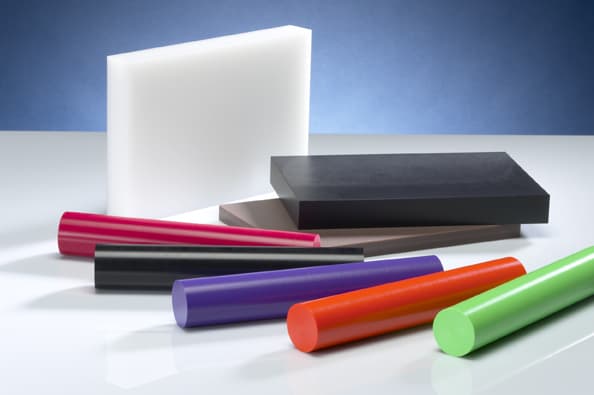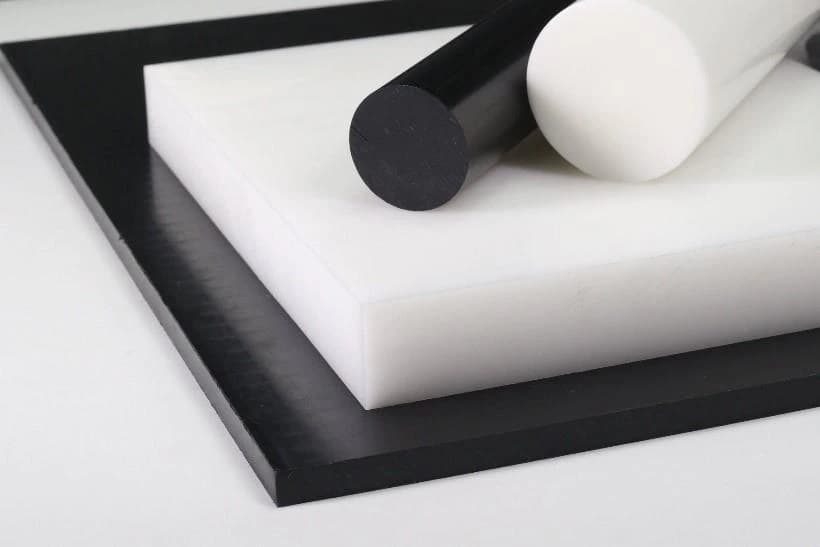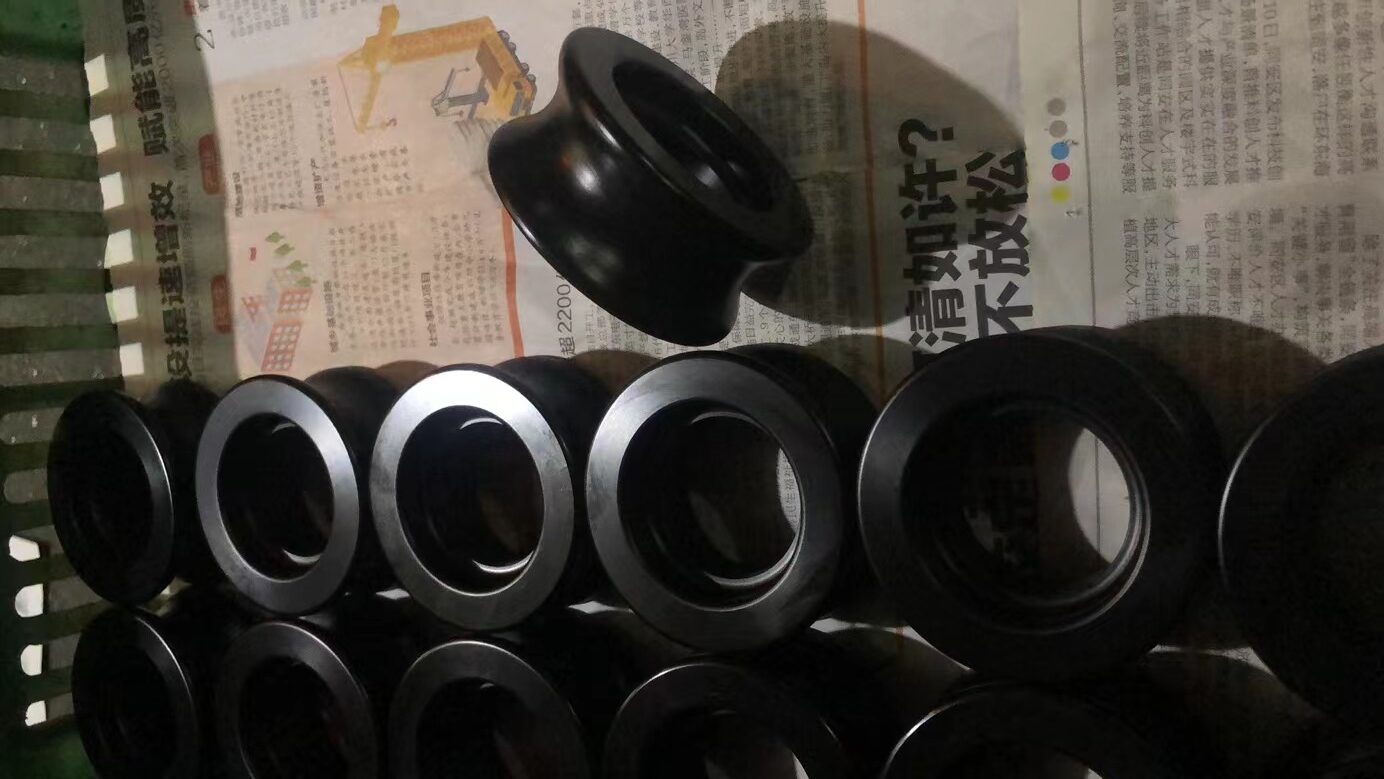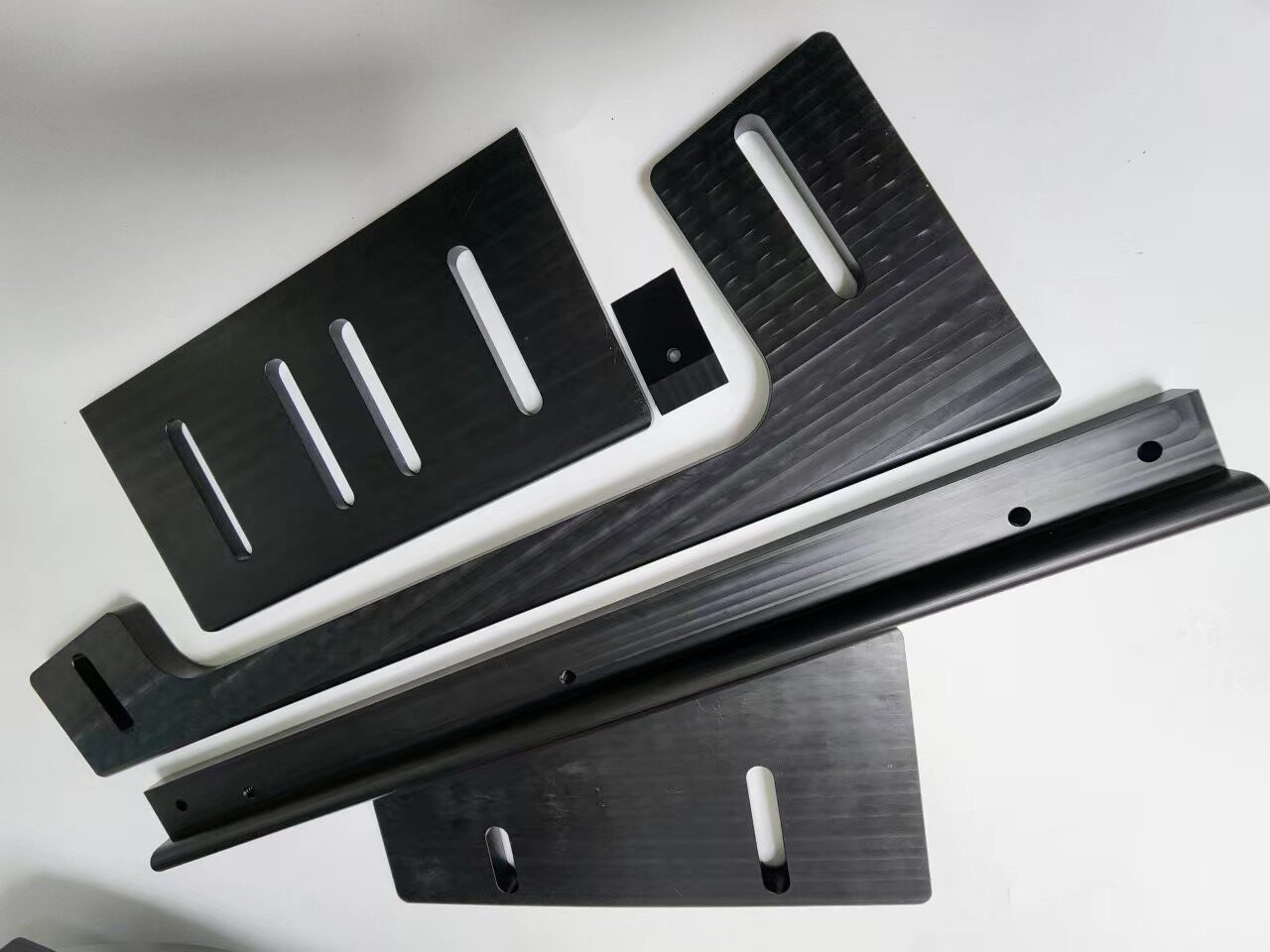
Are you searching for a plastic that's both strong and easy to machine?
Delrin is a type of acetal resin known for its high strength, stiffness, and excellent machinability.
I've found that knowing more about Delrin can help in choosing the right material for your projects.
Introduction to Delrin: What Is It?

What exactly is Delrin, and why is it so popular?
Delrin is a brand name for polyoxymethylene (POM), a high-performance engineering thermoplastic developed by DuPont.
I first discovered Delrin when I needed a durable material for a precision part.
Dive Deeper: Understanding Delrin
Delrin belongs to the acetal family of plastics. It's known for its:
- High strength and stiffness
- Excellent dimensional stability
- Low friction and wear resistance
These properties make it a go-to material for many engineers.
Table: Basic Properties of Delrin
| Property | Value |
|---|---|
| Density | 1.41 g/cm³ |
| Melting Point | 175°C |
| Tensile Strength | 69 MPa |
| Flexural Modulus | 3100 MPa |
| Coefficient of Friction | 0.2 |
Understanding these numbers helps in selecting the right material for specific needs.
Key Physical and Mechanical Properties of Delrin
What are the main properties that define Delrin?
Delrin offers high mechanical strength, rigidity, and good creep resistance, even at elevated temperatures.
I've noticed that these characteristics set Delrin apart in demanding applications.
Dive Deeper: In-Depth Properties
High Mechanical Strength
Delrin can withstand significant mechanical stress without deforming. This makes it ideal for load-bearing components.
Low Friction and Wear Resistance
Its low coefficient of friction 1 reduces wear and tear, extending the lifespan of moving parts.
Thermal Stability
Delrin maintains its properties over a wide temperature range, from -40°C to 120°C 2.
Chemical Resistance
It resists fuels, solvents, and many other neutral chemicals,which is essential in harsh environments.
How Delrin Stands Out: Advantages Over Other Plastics

Why might you choose Delrin over other plastics?
Delrin combines strength, machinability, and low friction in a way that many other plastics can't match.
In my projects, Delrin often outperforms materials like nylon or polyethylene.
Dive Deeper: Comparing Delrin to Other Materials
Delrin vs. Nylon
- Moisture Absorption: Delrin absorbs less moisture, maintaining dimensional stability 3.
- Machinability: Delrin machines more cleanly, allowing for tighter tolerances.
Delrin vs. Polyethylene
- Strength: Delrin has higher tensile strength 4.
- Temperature Range: Delrin operates effectively at higher temperatures.
Table: Delrin Compared to Other Plastics
| Property | Delrin | Nylon | Polyethylene |
|---|---|---|---|
| Tensile Strength | High | Moderate | Low |
| Machinability | Excellent | Good | Fair |
| Moisture Absorption | Low | High | Very Low |
| Operating Temp | -40°C to 120°C | -40°C to 100°C | -50°C to 80°C |
Understanding these differences helps in making the best material choice.
Common Applications of Delrin in Various Industries
Where is Delrin most commonly used?
Delrin is widely used in automotive parts, industrial machinery, and consumer products due to its durability and precision.
I've recommended Delrin for components that require both strength and accuracy.
Dive Deeper: Industry Uses
Automotive Industry
- Fuel System Components: Resistant to fuels and lubricants 5.
- Mechanical Gears: Low friction improves efficiency.
- Door Mechanisms: Durable under repetitive stress.
Industrial Machinery
- Bearings and Bushings: Withstands heavy loads.
- Valve Components: Maintains integrity under pressure.
Consumer Products
- Zippers and Fasteners: Strength without adding weight.
- Sports Equipment: Durable parts for long-term use.
Medical Devices
- Surgical Instruments: Sterilizable and biocompatible.
- Orthopedic Components: Precision machining allows for custom fits.
These applications showcase Delrin's versatility across industries.
Limitations and Considerations When Using Delrin

What are the potential downsides of using Delrin?
Delrin can be sensitive to acids and UV light, and it has a higher cost compared to some other plastics.
I've learned that it's important to weigh these factors before choosing Delrin.
Dive Deeper: Potential Drawbacks
Chemical Sensitivity
- Strong Acids: Delrin can degrade when exposed.
- Oxidizing Agents: May cause material breakdown.
UV Exposure
- Outdoor Use: Prolonged UV exposure can lead to surface degradation.
- Solution: Use UV-stabilized grades or protective coatings.
Cost Factors
- Material Cost: Higher than common plastics like ABS.
- Machining Cost: Excellent machinability can offset material costs through reduced processing time.
Table: Limitations of Delrin
| Limitation | Impact | Mitigation |
|---|---|---|
| Chemical Sensitivity | Material Degradation | Use in controlled environments |
| UV Sensitivity | Surface Cracking | UV Stabilizers |
| Higher Cost | Increased Expenses | Optimize Design |
Being aware of these limitations ensures better application results.
Conclusion
Delrin's unique properties make it a valuable material for many applications, provided its limitations are considered.
-
This resource will provide insight into the durability benefits of Delrin's low friction properties. ↩
-
Discover detailed temperature specifications for Delrin's performance in various conditions. ↩
-
Discover why Delrin's lower moisture absorption makes it more dimensionally stable compared to nylon. ↩
-
Find data comparing the tensile strengths of Delrin and polyethylene to determine which is better for load-bearing applications. ↩
-
This will help you understand how Delrin performs in automotive fuel systems exposed to harsh chemicals. ↩

